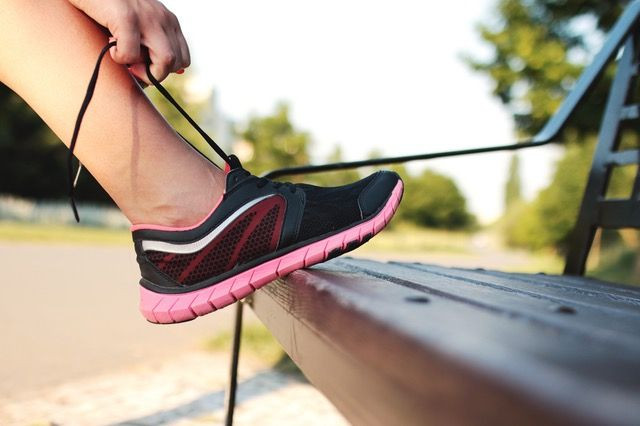Life Expectancy In Runners Vs. Non-Runners: Running 2 Hours Per Week At Any Speed, Mileage, Adds 3 Years Of Life

If you run on a weekly basis, the thought of signing up for a marathon or half-marathon has crossed your mind. Going on tempo runs and doing endurance tests on the roads and trails for hours on end seems challenging, but fulfilling. Now, researchers at Iowa State University suggest you don't need to extensively train to reap the benefits of running a marathon.
Two hours of running per week at any speed or mileage can increase your lifespan by three years.
Read More: Is Running A Marathon Bad For Your Body?
The study, published in Progress in Cardiovascular Diseases, re-analyzed data from previous research conducted three years ago at the Cooper Institute in Dallas, Texas, along with other studies that observed the link between exercise and longevity. Dr. Duck-chul Lee, co-author of the study, and a professor of kinesiology at Iowa State University, who was also involved in the Cooper Institute study, previously found weekly running, even five to 10 minutes a day, and at slow speeds (less than six miles per hour), significantly reduced overall mortality risk by 30 percent. The researchers were inundated with questions, like whether activities such as walking are beneficial, and if there's a point where running becomes counterproductive at an undefined number of miles or hours.
The new review echoed the findings of the Cooper Institute study: running at whatever pace or mileage dropped a person's risk of premature death by almost 40 percent. This benefit held true even after researchers accounted for smoking, drinking, and health problems such as hypertension or obesity. Using previous data, the researchers concluded if runners ran two hours per week, they would spend less than six months actually running over the course of about 40 years, which would lead to a life expectancy of about three years or more.
Of course, these additions “are not infinite,” Lee told The New York Times.
He emphasizes the gains of life expectancy are capped at around three extra years, no matter how much people run. Lee and his colleagues found improvements in life expectancy reach their peak at about four hours of running per week, but they did not decline. Meanwhile, walking, cycling, and other activities boosted lifespan, but not at the same rate. These activities dropped the risk of premature death by about 12 percent.
So, what makes running more advantageous than other exercise?
The researchers admit it's not clear how running directly increases life expectancy, but he suspects it has to do with the lifestyle of those who run. Typically, runners are more health conscious, which could influence their rate of mortality. But one thing remains true: runners appear to live longer, even those who run at slower speeds and mileage.
Read More: This Is Your Mind On Running
A 2015 study published in the Journal of the American College of Cardiology also found speed and mileage have very little influence on mortality. Joggers consistently lived longer than people who did not exercise, with an ideal amount of jogging ranging between one hour and 2.4 hours each week at a slow pace. In other words, plodding joggers tended to live longer than those who ran faster. In fact, those who jogged often and at the fastest pace, or runners, had about the same lifespans as those who didn’t exercise at all.
Remember, whether you’d like to go for a run or a jog, go at your own pace, but realize there is a cap for reaping its longevity benefits.
Source: Lee DC, Brellenthin AG, Thompson PD et al. Running as a Key Lifestyle Medicine for Longevity. Progress in Cardiovascular Diseases. 2017.
See Also:
Running, Rigorous Exercise After A Study Session May Help Improve Memory Retention



























